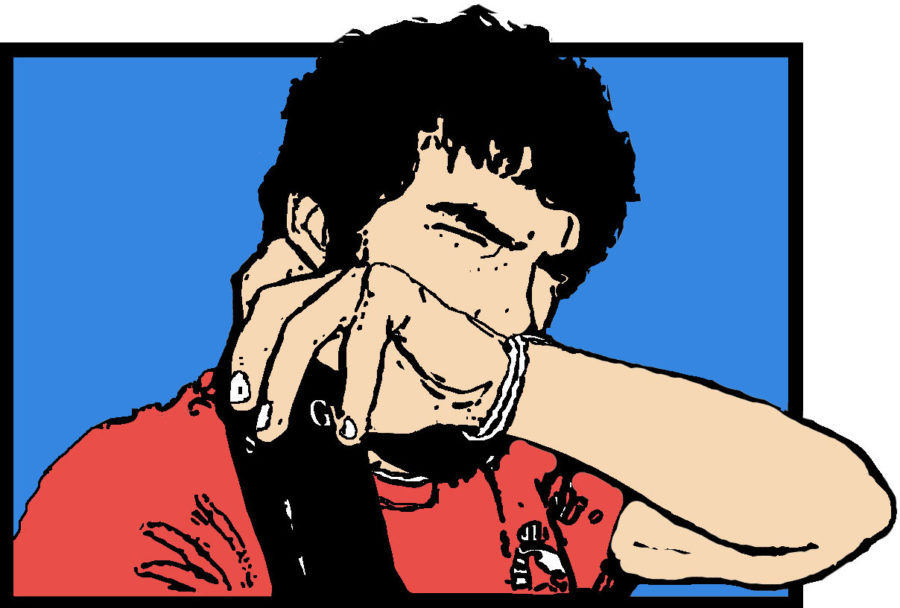Shiralkar: Anatomy of an achoo
September 5, 2020
When I first arrived to the States and sneezed publicly into my hoodie, I was blessed by a random stranger in broad daylight. It was unlike anything I’d ever experienced in my life. I did some reading into it, and apparently, sneezing has had a superstitious connotation to it since ancient Greek times. In any case, given the “pandemically-charged” climate, I thought it would be nice to do a write-up on the topic. Warning: mildly gross content.
In the Midwest, typically, you’ll hear a “Bless you!” after a sneeze. This is done to prevent sudden death. The practice originated from the belief that your heart stops for a moment when you sneeze. Unfortunately, this is not the case. When you sneeze, the intrathoracic pressure in your body momentarily increases, so the heart gets a little less blood for a moment. It compensates by readjusting its pumping rhythm. Your heart, thus, doesn’t technically stop, it just skips a really fast beat.
Homer’s “Odyssey” also has instances of Greek heroes sneezing without context. In Book 17, Penelope (the queen) and Eumaeus (the shepherd) are talking, as a feast for the suitors takes place in the palace halls. Suddenly, Telemachus (the prince) sneezes loudly. Penelope laughs, because she takes this as an omen that the suitors would die, just like she had been discussing a moment ago. Xenophon, the ancient Greek soldier and writer, also writes about this in “Anabasis,” claiming that a sneeze is a sign from Zeus himself.
This sort of superstitious outlook isn’t uncommon in some Indian cultures either. If you sneeze while someone around you is planning something, it is generally taken as a good omen — what they’re planning will probably succeed. But if sneezing is so good for the success of plans, why don’t we sneeze all the time, on command? The answer is disarmingly simple: we can’t. Like other nonsensical bodily reactions (falling in love, for example), sneezing is a complex process.
It all starts in the nasal lining, the part where the mucus usually accumulates. The insides of our nostrils are lined with cilia — tiny hair-like structures that can detect irritants — which sense unwelcome (and usually ticklish) material. Then, pressure builds up inside your chest, your vocal cords close and then open and your diaphragm will move up. When this happens, your eyes will close while thousands of tiny droplets in the form of diluted goo are expelled at high speed though your nose and mouth. This is your body’s way to get rid of unwanted particles.
Some people also sneeze from standing under bright lights. This is called a photic sneeze reflex (also known as Autosomal Compelling Helio-Ophthalmic Outburst, or ACHOO). It’s a real acronym — there are naturally funny people in STEM. So no, you cannot control when you sneeze. Forcibly trying to stop a sneeze in a bad situation — like, say, in the middle of a prostate exam — is harmful to your eardrums as well. Et voila, you should sneeze when you feel one brewing up.
But while letting go of unwanted particles fast is good for your body, sadly, it is also a way for these particles to spread far and wide. Despite public unrest, the COVID-19 mask mandates really do make sense though, especially since sneezing is a primarily involuntary reflex. Wear a mask at all times you’re outside, and stay safe.

















